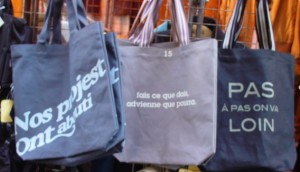Snežana Samardžić-Marković :Pioneering work on democratic competences to transform the way we live and work
16/03/2015 – New Europe / International
We assume our family doctor has a degree in medicine, that the history teacher in the local school passed his history exams and that the producer of our favourite TV chat show has been trained to make television programmes. Rightly, we expect professionals to be qualified for the work they do. Technical expertise is vital for the job.
But it is not enough. The doctor, who does not listen to her patients, will base her diagnosis on partial information. The history teacher, who ignores the Roma girl being bullied in class, contributes to her suffering and failure at school. The producer, who selects three well-known male experts and a good-looking woman for his show, limits the scope of the debate and reinforces existing stereotypes.
We do not all necessarily need to leave school or university with qualifications in biology, history or journalism, but we all need democratic and intercultural competences; that is, the values, attitudes, skills, knowledge and critical understanding that enable us to participate effectively in today’s diverse democracies.
The Council of Europe has been actively promoting human rights and citizenship education for many years, providing comprehensive training programmes, manuals and educational materials both in schools and universities and through youth work and non-formal education. But what has been lacking up to now is a universal and objective system to define and measure the democratic competences required.
This is exactly what the Council of Europe is working on today. It is a Herculean task. After analysing more than 90 existing schemes, we have defined 20 core competences, including: responsibility, tolerance, conflict resolution, listening skills, linguistic and communication skills, critical thinking, empathy and openness.
We are now identifying ‘descriptors’ for each competence, which describe what an individual knows, understands and is able to do or refrain from doing. A descriptor for ‘autonomous learning skills’ might be, ‘judging the reliability of the various sources of information or advice and selecting the most reliable sources from the range available’.
Around 2,000 possible descriptors are to be rigorously tested by teachers in a wide range of cultural settings and at all levels of education across Europe through the Council of Europe’s teacher-training Pestalozzi Programme and its summer academies, run with the European Wergeland Centre in Norway. On the basis of these tests, a questionnaire will be created and sent out to teachers Europe-wide. The resulting data could then be used to define levels of attainment for each competence. No other organisation has embarked on such extensive testing in this field of work.
Gradually, this new system for measuring intercultural competences will be ready to incorporate into teacher-training programmes, recruitment tests and the school curriculum, across Europe and beyond.
This is a demanding undertaking, more challenging even than our Common European Framework for Reference for Languages, which establishes six levels for the core language skills (reading, writing, speaking and listening) that can be applied to every language. But it goes to the heart of the Council of Europe’s mission to promote human rights and democracy and, for us, ‘challenging’ means ‘possible’.
Once the competences become part of the skill set pupils are required to master, they will leave full-time education properly equipped, as responsible citizens, to contribute to our modern, intercultural democracies. When applying for jobs or training, they will be able to cite their level of attainment for ‘empathy’ and ‘critical thinking’, alongside their academic qualifications and language skills. Most importantly, I hope we will see a continuing reduction in discrimination, bullying, violence and – of great concern to us all at the moment – radicalisation, both in schools and in our societies.
FROM:
Sjur Bergan
Head of the Education Department

